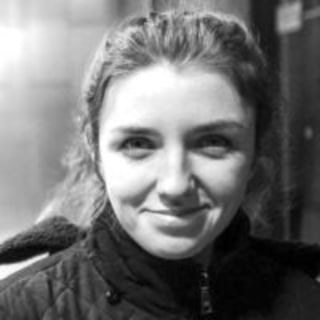
Spring break did not go as I had planned. I thought I would get ahead on my studies, hit the gym daily, and blissfully enjoy a stretch of stress-free medical knowledge integration. Instead, I spent my time at home with my two kids under five, anxiously refreshing the worldometers website. I didn’t trust the number of new coronavirus cases. I still don’t.
I keep refreshing the death toll. It was small that week. It is still small. But the word exponential keeps ringing in my ears — and I wonder how much our lives will change if the y-axis of that curve becomes very large and continues growing exponentially. As of March 28, 2020, the death rate in the United States is doubling every three days.
Every time I speak to a family member, they ask me where I’m getting all these details, all these theories, all these stories. I read every news article. I can’t stop reading. Every reddit post. Every Facebook thread. Blog posts, Nextdoor rants, anecdotal tales. Anything I can get my hands on, especially from health care workers in areas that had been hit hard by the virus. If these information sources were books, they would be in tatters. I devour them. Refresh, rehash, review.
Is this writer credible? Is there an agenda here? How many of these sickened young people have comorbidities? Why the heck aren’t we releasing more valuable stats – are they just trying to scare Gen Z into staying home? At least the children are spared … could this mutate? Wait, what? Are we really talking about bailing out cruise ships?!
Spring break was exhausting, and it had nothing to do with my study schedule. And then, suddenly, it was the Sunday before classes were set to begin again. I was wiped out. I was frustrated with myself for not recognizing the gravity of the situation earlier, frustrated by the politics of it all, frustrated by the economic fallout. I’m livid that class, instead of vulnerability, has determined who is allotted the privilege of self-quarantine. And there is nothing I can do about any of it.
It is a terrible feeling: knowing you can’t help. But it’s also a mindset. As Sweden’s state epidemiologist recently pointed out: “This is not a disease that is going to go away in the short term or long term. We are not in the containment phase. We are in the mitigation phase.” Talk about a vaccine in the next year or two is characterized by hope, not certainty. A scientific solution cannot be promised. Hospitals are balancing safety, public health, and resident education on the wards. Those that house medical schools have an additional burden: balancing medical education, student safety, and the uncertain future of public health. We are already experiencing a physician shortage. Coronavirus is just making it acute.
On Sunday night I gave my husband the log-in details for every account I have and asked him to change the passwords. I blocked the sites I can’t help refreshing. The news, I tell myself, is now an after-hours affair. I still stare at my computer screen: watching lectures, small grouping via Zoom, and slowly making my way through question banks. I have caught up with my flashcards.
It feels so disconnected from reality, but it’s not. I am being called upon to prepare.
As medical trainees, we need to be ready to replace the class of doctors before us, as they replace the class before them, in spite of the challenges we face. Maybe this pandemic will be a dim memory by the time we graduate. Maybe the death toll will remain small and we’ll wonder if the world overreacted. I hope so, but nothing is certain. We may have to work harder, learn faster, and practice with relatively minimal oversight early in our careers. Reading every news article about the coronavirus isn’t helpful. Studying to hit the wards running when our time comes is more than helpful – it is essential. Now, when I’m grinding flashcards or tackling vignettes, I remind myself to be proud. I’m doing my part. I’m helping.
Erin Wildermuth is a medical student with a master's in International Political Economy from the London School of Economics. She is passionate about health, economics, and technology. She recently edited a compilation of international essays from women using technology to find economic independence and work-life balance. Erin is a 2019–2020 Doximity Fellow.
Click here to see more perspectives on COVID-19 from the Doximity network.
Click here for up-to-date news about COVID-19 on Doximity.






